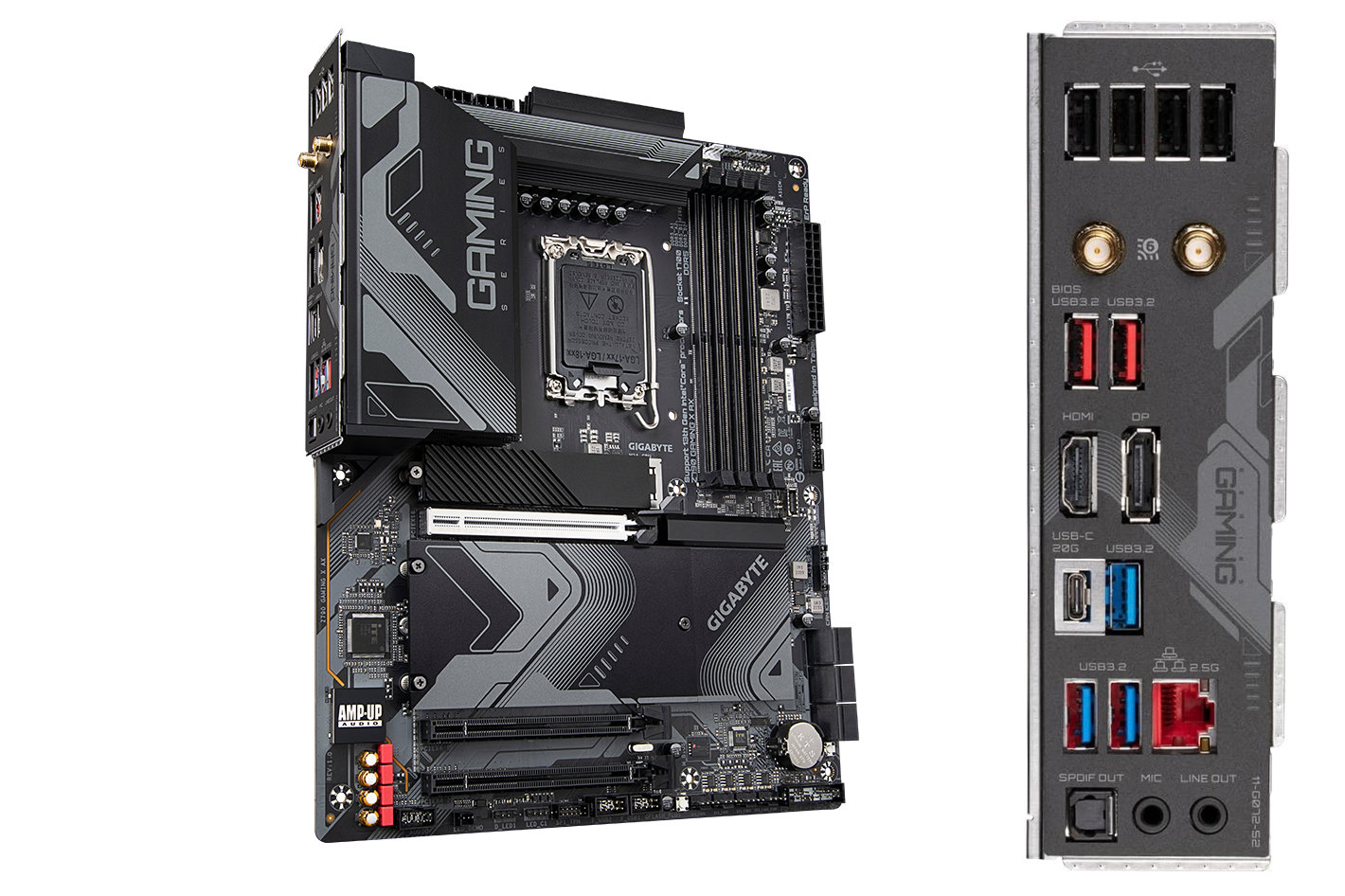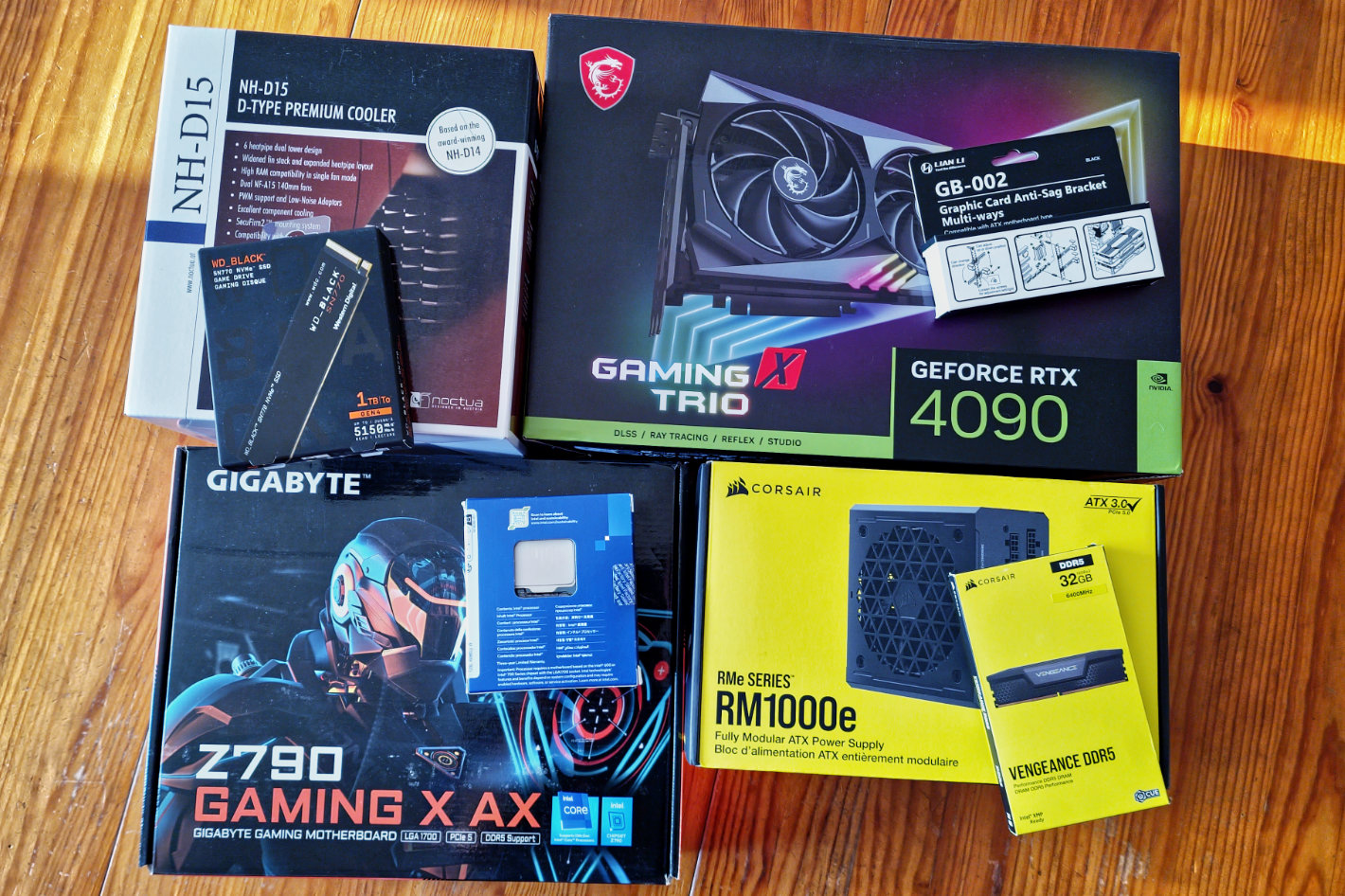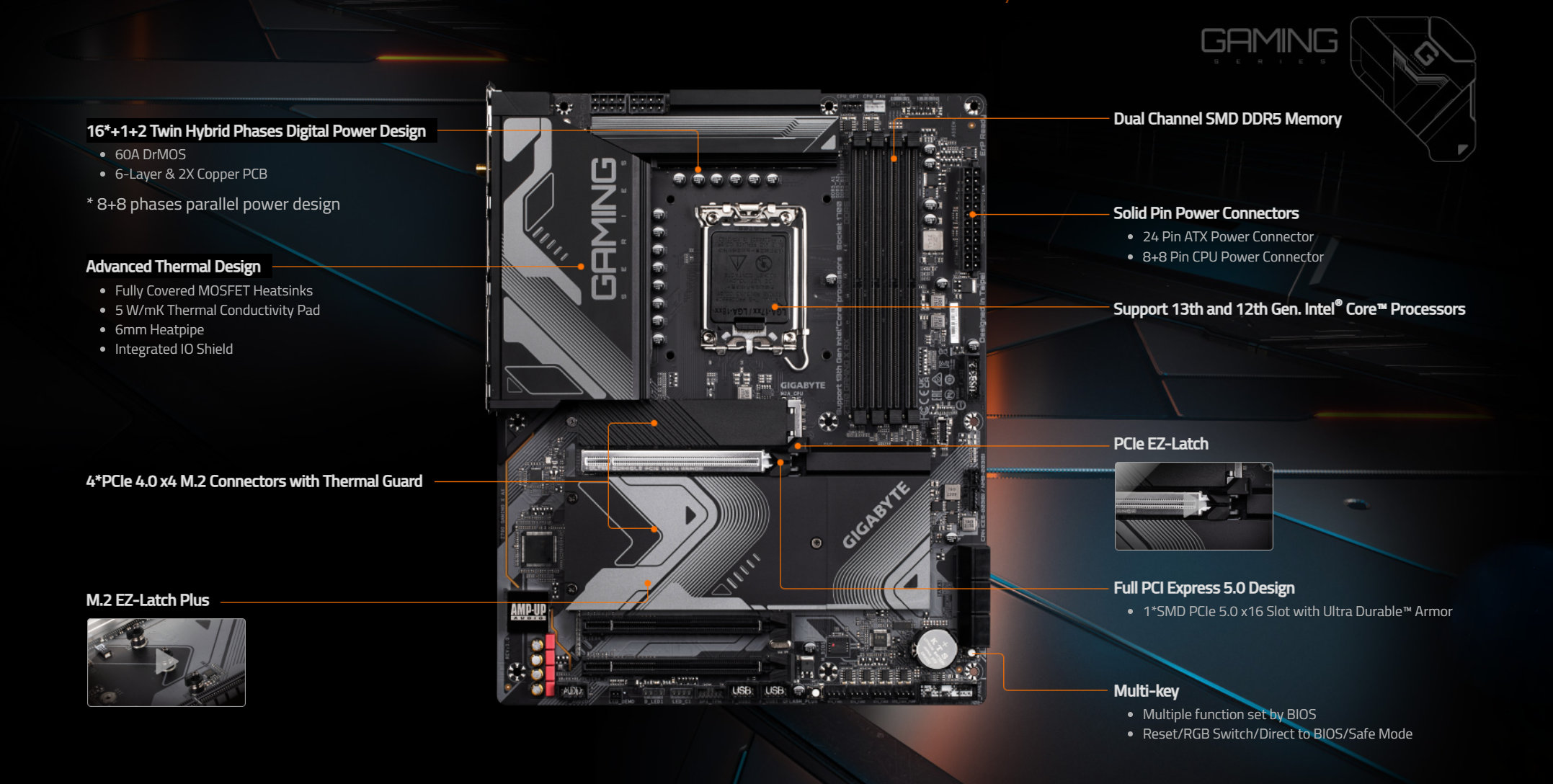

The choice of motherboard is also directly responsible for the potential longevity of the system you’re building, so you’ve to choose wisely: again, it is possible to buy a cheaper motherboard, that does serve the immediate needs, but as with other components of the computer, spending more money now can guarantee that future upgrades are viable. This is not a simple discussion, though, because different people may have different needs.


As the PC build we’re using as example here uses an Intel i7-14700K there is only one choice in terms of motherboards: those using the LGA1700 socket. As we noted before, the 14700K represents the end of the line for this family of CPU, so whatever motherboard is chosen, it will not be used for any other CPU in the future, meaning there is no upgrade path. Does one have to go for a Z790 motherboard, more expensive, or would a B760 motherboard, more affordable, suffice?
The Z790 motherboards offer more features and better upgradeability. The Z790 chipset allows multiplier overclocking for “unlocked” processors (those with names ending in “K”, as the Intel i7-14700K), and extra PCIe, SATA, and USB connections compared to cheaper chipsets. They also typically have more robust VRMs (voltage regulator modules, the components which deliver power to the CPU and RAM), more fan and RGB headers, and better integrated audio and network (ethernet and Wi-Fi) controllers.
Still, it’s not an easy choice, and if you don’t know why you should buy a Z790 motherboard, you probably shouldn’t. It’s always possible to get cheaper motherboards that work well and are good enough for many uses and users. Price, is a key factor, though, and that’s the reason why we opted for a Gigabyte Gaming X AX, a Z790 motherboard (LGA 1700/ Intel/ Z790/ ATX/ DDR5/ M.2/ PCIe 5.0/ USB 3.2 Gen2X2 Type-C/Intel Wi-Fi 6E/ 2.5GbE LAN/Q-Flash Plus/EZ-Latch Plus/Gaming Motherboard) against the Gigabyte B760 Gaming X AX (LGA 1700/ Intel/ B760/ ATX/DDR5/ M.2/ PCIe 4.0/ USB 3.2 Gen2X2 Type-C/AMD Wi-Fi 6E/ 2.5GbE LAN/Q-Flash Plus/PCIe EZ-Latch/Motherboard).
Their specifications are very similar but the price, $179.99, for the Gigabyte Z790 Gaming X AX against $164.99 for the Gigabyte B760 Gaming X AX, a mere $15 difference, made the choice easy: why not have a more powerful motherboard that will last longer? With support for PCIe 5.0, two more SATA connections, more USB connections on the back panel and other differences, the Gigabyte Z790 Gaming X AX completely justifies the extra $15.
This Z790 motherboard was not our first choice. It had to be Gigabyte, as all recently builds we’ve done with Gigabyte Aorus and Elite have not given us any problems, but we were looking at the UD (Ultra Durable) versions from Gigabyte, which offer a clean look and specifications that make them interesting… with a good price. As we could not find the model we were looking for, we opted for the Gaming Z790 X AX (which means it has Wi-Fi) after seeing a review on the YouTube channel Tech Notice (which you can watch here) that compared it with more expensive Gigabyte motherboards. And the price, when we bought it, was – much – lower than it was at the time the video was published!
So, once we had chosen the “Gaming” motherboard from Gigabyte – after all we already have a MSI GeForce RTX 4090 GAMING TRIO 24G to pair it with – we were ready to pick the other components of which a couple are equally important: the CPU cooler and the PSU. Although there are new options in terms of coolers, we opted for the Noctua NH-D15, an elite-class dual tower cooler with two premium grade NF-A15 140mm fans with PWM support for automatic speed control. It’s not the cheapest solution but from our previous experience with Noctua it felt as the right solution for this build.
For the PSU the choice was also easy: a Corsair RM1000e fully modular ATX power supply. Again, our previous experience with PSUs from Corsair in other builds justified picking this model over others to power the whole system. When you spend years building your own computers you tend to stick to brands you’ve experience with.
After the essential base components are defined, it’s time to pick the memory modules and storage devices. Memory modules (RAM) and storage (HDDs, SSDs, NVMe) work hand in hand to make sure your PC runs smoothly and stores all your data securely.
A 1TB NMVe, the WD’s Black SN770 SSD, which uses PCIe 4.0 to deliver speeds of up to 5.15 GBps, was also chosen, and we might add more NVMe disks, as the motherboard has space for them, in the future. We’re still considering if we will add a huge capacity HDD to this build, but for now an external 8TB disk from WD is working fine as storage. That’s one of the good things about building your own computers: you can always move pieces of the puzzle around, as needed.

